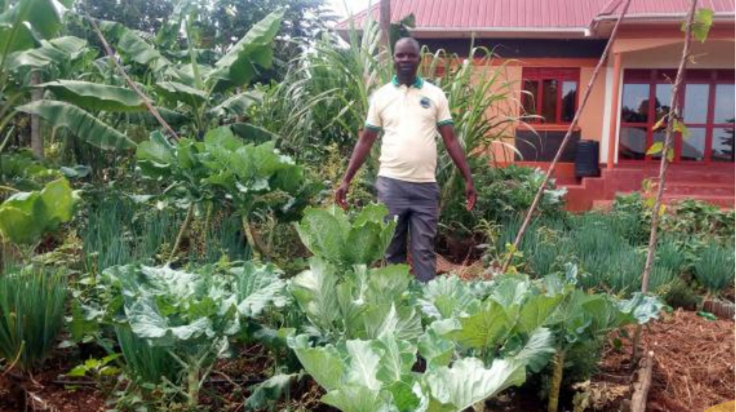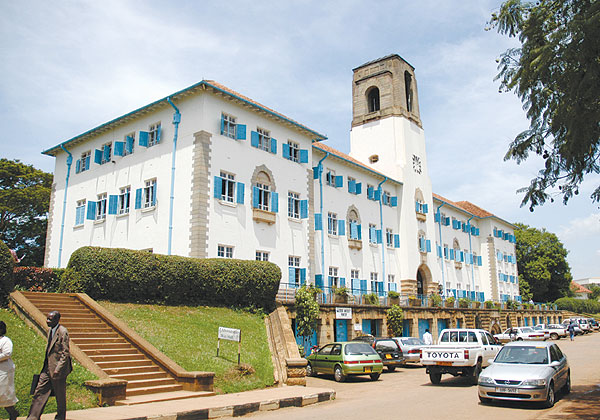Francis Ssematimba, HeadTeacher of St Maria Gorreti Mpugwe Primary School in Masaka in compound gardens
When the government confirmed the outbreak of the COVID-19 pandemic in Uganda, Francis Ssematamba was among the teachers who thought the pandemic could be easily contained for studies to resume shortly.
Little did the Head Teacher of St. Maria Gorreth Mpugwe Primary School in Mukungwe Sub-county in Masaka district expect that the school shut down announced by President, Yoweri Kaguta Museveni would last for close to two years now as the country continues battling the novel coronavirus.
When Museveni maintained the lockdown restrictions and the stay-home orders for teachers in April, Ssematimba says that he had to think of how better to spend his time as well as earn some side income as opposed to only watching over the school property until they reopen for classes.
To beat the lockdown restrictions, Ssematimba borrowed knowledge from his school teaching style, which prior to the COVID-19 pandemic had started piloting a program that deliberately integrated the ordinary learning process with proper land use management practices.
Under the integrated teaching-learning approach, both the school compound and backyards are turned into demonstration gardens where learners can practice improved urban farming that can viably earn them some income.
According to Ssematimba, this was meant to teach pupils how to optimally and innovatively utilize the available land resources around them to sustain themselves outside the formal employment sector.
Although the idea was initially targeting primary schools, Ssematima says the COVID-19 lockdown prompted him to expand it beyond the school environment to households by uniquely decorating compounds with vegetable gardens to replace flowers and grass.
He decorates the compound with different layers of nutritious vegetables and seasonal crops that include among others cabbages, onions, carrots, tomatoes, eggplants, spinach red peppers, and pawpaw trees that are organically maintained.
From the school’s demonstration gardens, he also extended the idea to his home, which has since attracted him several customers who regularly seek to have the project replicated into their homes.
He explains that besides individuals and organizations that hire him to design their compounds at a minimum of Shillings 1.5 million, his home has lately turned into a community training center where local clubs or groups are charged between Shillings 150,000 to 250,000 as they come to benchmark on the project.
Ssematimba is optimistic that with the recent modification of the lower secondary schools teaching curriculum to introduce the component of proper land use management, environmental conservation, and better agricultural practices, his services will inevitably be required as soon as schools reopen.
Besides beautifying compounds, the gardens according to Ssematimba can potentially sustain families with a regular source of income as well as keep the children engaged, hence beating the lockdown hardships.
Moses Ssenfuka, one of the beneficiaries of the project indicates that the idea has modified the traditional farming practices hence attracting all categories of people.
While executing the idea, the implementers also have a component of using solid waste materials like plastic and metallic containers and old car tyres that are decorated with various colors and are eventually used as holding vessels for the plants.
-URN





